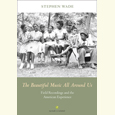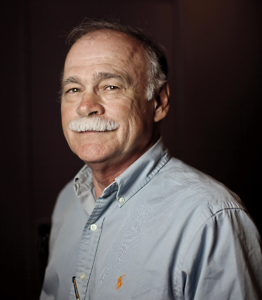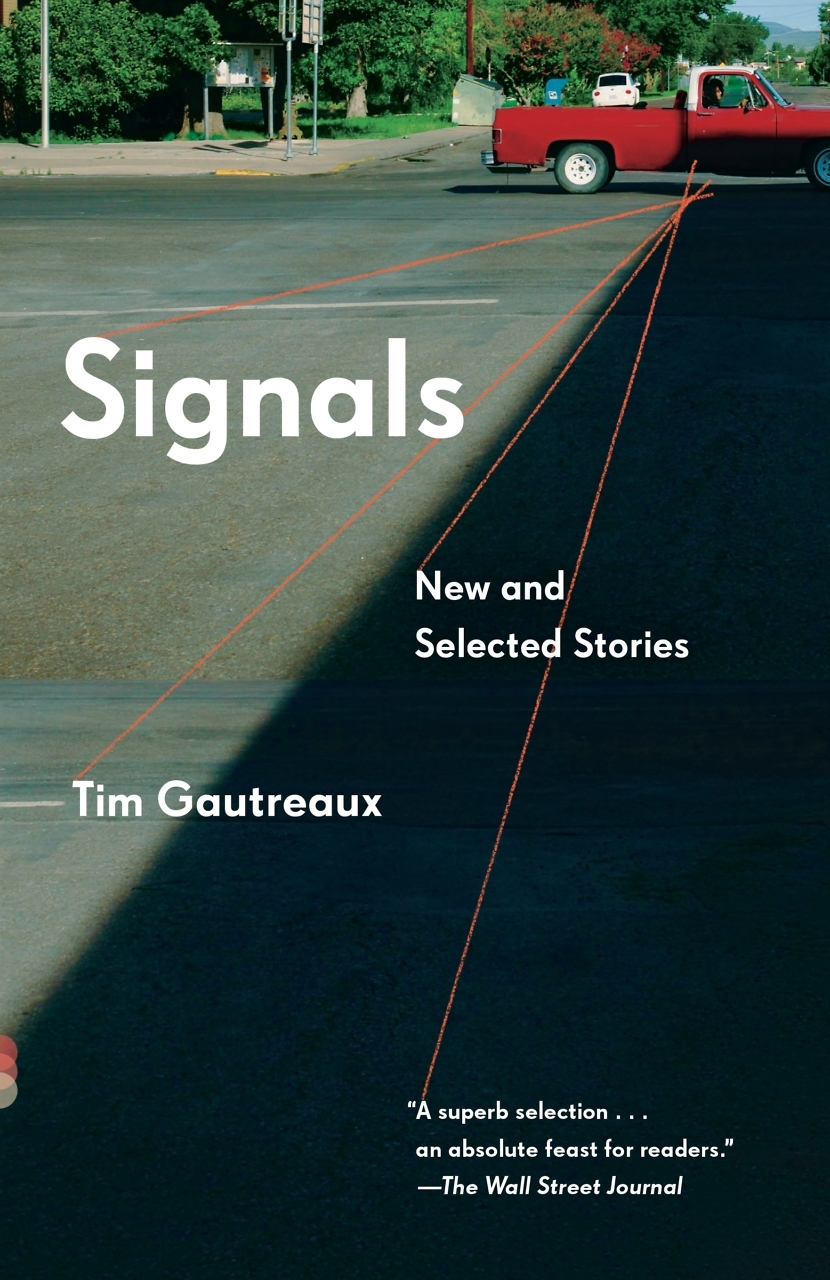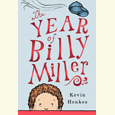"Wondrous" is the Word
Humanities Tennessee welcomes Pulitzer Prize-winning novelist Junot Díaz
Junot Díaz is the author of a collection of stories, Drown (1996), and won the 2008 Pulitzer Prize for his novel, The Brief Wonderous Life of Oscar Wao in 2008. This epic is an atypical coming-of-age story about the literary-minded Oscar, along with meditations, both comic and tragic, on the members of his Dominican family. More broadly, however, it’s a biography of the relationship between then and now, there and here—between present day New Jersey and the Dominican Republic under the dictatorship of Raphael Trujillo in the 1930s and 40s. While it explores the complicated journeys of the children of immigrants in American, the book also reminds us, with the mesmerizing stories of generations past, that our homeland is never very far away. In addition to winning the Pulitzer Prize, the novel appeared on over thirty-five best-of-the-year book lists, won the John Sargent Senior First Novel Prize, the Dayton Peace Prize in Fiction, and the National Book Critics Circle Award, among others. Díaz spoke with Chapter 16 in advance of his visits, sponsored by Humanities Tennessee, to both Memphis and Nashville.
Chapter 16: Did you ever imagine a widespread audience of teenagers, or that your work would be taught in high schools in Tennessee?
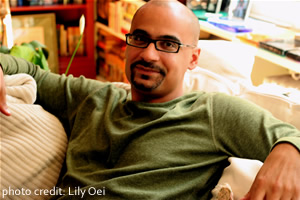 Díaz: It’s hard for me to imagine that anyone would be reading my work, so every little bit counts, and I certainly appreciate it. The novel is a book about the lives of young people, but I’m always struck that anyone would teach my work.
Díaz: It’s hard for me to imagine that anyone would be reading my work, so every little bit counts, and I certainly appreciate it. The novel is a book about the lives of young people, but I’m always struck that anyone would teach my work.
Chapter 16: You’ve acknowledged that your writing contains unintelligible moments, such as untranslated Spanish or comic-book references, which readers will encounter and make sense of in their own ways. Do you think teenagers are more accepting of this narrative strategy?
Díaz: It depends on anyone’s education. There are some people who are from birth comfortable with these things, and some who are not. Certainly education has an impact. Most current education doesn’t encourage young people to be comfortable in these spaces. The reduction in arts programs nationally adds to this problem. Art educates people best in this arena—to deal with things that are incomprehensible, unintelligible, or that seem contradictory. Dealing with these absences is what art does best.
Chapter 16: Yunior, a recurrent character in your work and the narrator in your short story “The Pura Principle,” is a teenage boy who smokes a lot of dope but who makes the keenest observations. Do young people connect to him?
Díaz: It’s always hard to say. Sometimes the damn thing works; sometimes it doesn’t. Sometimes you get a character that makes sense, is intuitive. A lot of times you get characters that are straight-up dumbasses—there is this range for young people and old. You have dumbasses who say the right thing and really smart people who are all just talking gibberish. Sometimes it’s the opposite. I find it hard to put my mind around how we make sense of the world.
Chapter 16: The character of the mother in “The Pura Principle” is geographically cut off from her past, re-imagines Dominican culture for her children, and is isolated from gringo culture—a situation that leads one to imagine an entire cohort living in its own small America.
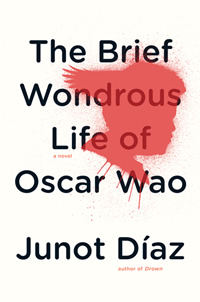 Díaz: It is extraordinary how many worlds there are in any given space, all amazingly compartmentalized, and made crazier by the fact that even within our families we’re living in multiple, simultaneous worlds. It’s sort of bananas. I’m struck by it most explicitly because I lived in a world of multiple generations and various levels of immigration and immigrants, but even if it’s not explicit in your life, adults and children are sometimes connected to three, four, five different worlds.
Díaz: It is extraordinary how many worlds there are in any given space, all amazingly compartmentalized, and made crazier by the fact that even within our families we’re living in multiple, simultaneous worlds. It’s sort of bananas. I’m struck by it most explicitly because I lived in a world of multiple generations and various levels of immigration and immigrants, but even if it’s not explicit in your life, adults and children are sometimes connected to three, four, five different worlds.
Chapter 16: Is this theme of multiple worlds limited primarily to the writing of immigrants in the U.S.?
Díaz: Hell no. Immigrant writers may make it more explicit, but I would not say it is just unique to us. It’s an incredibly large claim. Any formula you make about American writing or American immigrant writing, you’ll find a whole cohort to whom it doesn’t apply. And there are always writers who exhibit both truths.
Chapter 16: You’ve said elsewhere that you could conceivably write about Mexico City as it’s been ten years since you lived there. Why has it taken so long?
Díaz: I think I just work slowly. I have friends who can convert their experience overnight. I need to sit with something for a very long time before I can make any sense of it, even the simplest thing.
Chapter 16: You’ve just returned from the Hong Kong International Book Festival. What was that experience like?
Díaz: Traveling is fantastic. I love the shit out of it. I’ve always wanted to go to China—ever since the first time my family took me to see a Chinese movie in the Dominican Republic, it fascinated me. I grew up near a Chinese immigrant community and wanted to see China for myself. Also, I always say the reason I love book festivals is because you always get to meet book nerds, people who read. It’s brilliant.
Chapter 16: Is your work popular in China?
Díaz: I wouldn’t know, but I highly doubt it. Rare is it when a person’s work is popular even in their own country.
Chapter 16: Are you inspired by the great many unintelligible moments that are a part of travel?
I think it’s very important to encourage young people to imagine themselves as global citizens and to trek out into the world, the unknown.
Díaz: I think life is incredibly short and I did not grow up in a community where we were encouraged to consider the world as our inheritance, or the entire planet as mine, as an extension of me or my interest. Travel connects us to the world, the one place that’s truly ours. All this bullshit about neighborhoods, and about countries, and about nationalism—it has its place—but those are artificial and false divisions that have changed throughout history. The one thing I can safely say is that this planet under my heels belongs to me, and I belong to it. The world and I are one—beyond any of the current metaphysical, new age-ness that may seem to strike in people. I think it’s very important to encourage young people to imagine themselves as global citizens and to trek out into the world, the unknown. It’s only through that journey that we begin to understand what we are, to see the first big outline of who we are and the planetary constituency. This is fundamental. People should not even be permitted to learn a religion before they have traveled the world, before they get context and insight. Travel is tremendous in value.
Chapter 16: Is that value based on making new connections with the world, or on learning about the world’s vast differences among people?
Díaz: Whatever we can come up with is not going to encompass the entire experience. An experience is complex and difficult to describe. There is an enormous range of value in experience, some positive and some negative. To be human is to discover. To discover what it means to be human requires exploration, and the best part of exploration is travel.
Chapter 16: Is the complexity of one’s experience with place what makes it a challenge to write about?
Díaz: I always resist one-to-one correlations. I teach art to young people, and it’s always difficult—how mysterious this process is. Despite our desire for logic and understanding, fundamentally what we do, what I teach, is mysterious. I can no more explain why it takes me so long to write than I can explain why we have souls, or why we are conscious and sentient, or why people are so unpredictable. It is always easier for me to enjoy art and produce it than it is to explain it.
Chapter 16: You’ve defined a writer as one who writes despite having no hope or no promise. Would you still be writing if Oscar Wao had never come together for you?
Díaz: I did it for eleven years without evidence I was going to stop.
Junot Díaz will speak in Memphis at the Germantown Performing Arts Center at 10:30 a.m. on April 8, and in Nashville at Stratford High School auditorium at 9 a.m. on April 9. Both events, sponsored by Humanities Tennessee’s Young Readers Program, are free and open to the public.

